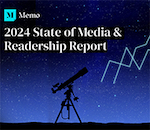Newly-surfaced details regarding retired wrestler Hulk Hogan’s privacy lawsuit against Gawker Media raise serious concerns about the press’ freedoms today as well as the relative economic fragility of digital media.
 |
 |
Hogan — née Terry Gene Bollea — famously sued Gawker for defamation, loss of privacy and emotional pain in response to that site’s 2012 release of a sex tape featuring Hogan and the (now-ex) wife of a (now former) friend. Hogan, who allegedly turned down several settlement offers, in March was awarded $140 million in compensatory and punitive damages, with additional lawsuits pending.
Defamation and libel suits against publishers aren’t exactly a new concept. However, in May it was revealed that the Hogan suit was covertly bankrolled to the tune of $10 million by Silicon Valley billionaire Peter Thiel. While it’s alarming to learn that a growing number of well-heeled third parties are now adding lawsuits to their investment portfolios, what makes this story even more unique is the suggestion that Thiel’s motivations were apparently not financial, but purely personal in design: Thiel, an eBay co-founder and early Facebook investor, in 2007 was famously outed in Gawker’s Valleywag blog for being gay.
Thiel in May told the New York Times that his goal in backing the suit was to instill “deterrence” in media sites such as Gawker that engage in “bullying people even when there was no connection with the public interest.”
The $140 million judgment, which is awaiting appeal, indeed may deter Gawker Media from doing just about anything, as it's left the company's entire future in question. The company, which owns sports site Deadspin, feminist blog Jezebel and technology news site Gizmodo, in May saw its motion for a new trial denied by a Florida judge. The media company has now hired investment counsel to discuss financial options, which includes the possibility of a sale.
Those who have long clamored for Gawker’s demise are no doubt cheering the news, but they would also be missing the larger issue here. Regardless of how you feel about the site’s journalistic rigor, or whether you believe Gawker violated Hogan’s privacy or altogether lacked judgment (or even basic taste) in its coverage of Hogan’s tryst, consider the implications of a legal environment in which billionaire third parties with big coffers and bigger chips on their shoulders can potentially reshape our media landscape and widen their political influence by waging financial attrition against press outlets that cover them unfavorably.
Thiel’s big victory may portend a troubling trend in the mega rich using the courts to settle personal vendettas against the fourth estate. If this trend continues, you can bet it will be small media companies like Gawker, which are potentially one judgment away from bankruptcy, and not the well-backed networks or publishers that could potentially weather such a legal onslaught, that will fold first.
Thiel doesn’t appear alone in his quest. Donald Trump, speaking during a February rally in Texas, said “I’m going to open up our libel laws so when they write purposely negative and horrible and false articles, we can sue them and win lots of money.”


 Trump Media & Technology Group today reported a $58.2M net loss on $4.1M in 2023 revenues, a disclosure that drove its stock price down 22.6 percent to $47.96.
Trump Media & Technology Group today reported a $58.2M net loss on $4.1M in 2023 revenues, a disclosure that drove its stock price down 22.6 percent to $47.96. Barry Pollack, an attorney at Wall Street’s Harris St. Laurent & Wechsler, has registered Julian Assange as a client with the Justice Dept. “out of an abundance of caution.”
Barry Pollack, an attorney at Wall Street’s Harris St. Laurent & Wechsler, has registered Julian Assange as a client with the Justice Dept. “out of an abundance of caution.” Paramount Global to slash 800 jobs in what chief executive Bob Bakish calls part of an effort to “return the company to earnings growth"... Rolling Stone editor-in-chief Noah Shachtman is exiting at the end of the month due to disagreements with chief executive Gus Wenner over the direction the magazine is taking... The New York Times broke the $1 billion barrier in annual revenue from digital subscriptions in 2023... Press Forward is investing more than $500 million to strengthen local newsrooms.
Paramount Global to slash 800 jobs in what chief executive Bob Bakish calls part of an effort to “return the company to earnings growth"... Rolling Stone editor-in-chief Noah Shachtman is exiting at the end of the month due to disagreements with chief executive Gus Wenner over the direction the magazine is taking... The New York Times broke the $1 billion barrier in annual revenue from digital subscriptions in 2023... Press Forward is investing more than $500 million to strengthen local newsrooms. The majority of news articles are read within the first three days of publication, according to a recent report.
The majority of news articles are read within the first three days of publication, according to a recent report. The Los Angeles Times gives pink slips to 115 people or 20 percent of its newsroom staff... TIME is also laying off about 30 employees, which is approximately 15 percent of its editorial staff... The Baltimore Banner, which was launched by Stewart Bainum in 2022 after he failed to buy the Baltimore Sun, added 500 subscribers per day in the three days following Sinclair Broadcast Group's deal to purchase the Sun.
The Los Angeles Times gives pink slips to 115 people or 20 percent of its newsroom staff... TIME is also laying off about 30 employees, which is approximately 15 percent of its editorial staff... The Baltimore Banner, which was launched by Stewart Bainum in 2022 after he failed to buy the Baltimore Sun, added 500 subscribers per day in the three days following Sinclair Broadcast Group's deal to purchase the Sun.


 Have a comment? Send it to
Have a comment? Send it to 
No comments have been submitted for this story yet.